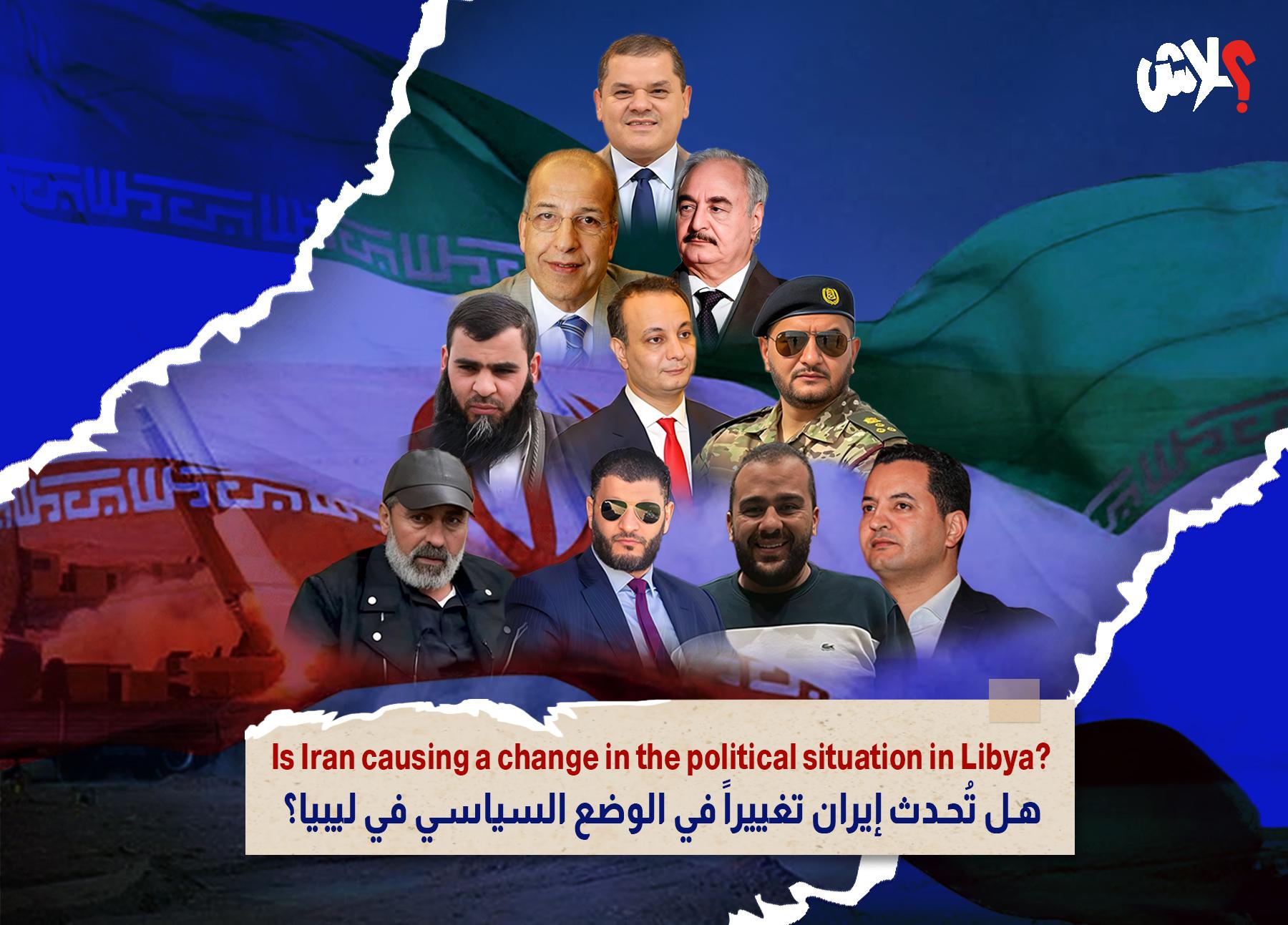Is Iran Bringing Change to the Political Situation in Libya?
We have said before and say now that “war is one of the tools of political action.” Consequently, wars always contribute in one way or another to changes in other places far from the battlefield. While the world and major powers are preoccupied with what is happening in the Middle East, specifically the genocidal war being carried out by the “phantom entity” against our people in Gaza, and with Iran entering the fray following the targeting of its embassy in Syria, which threatens to ignite a major war in that sensitive region, military vehicles are moving through the streets of Tripoli. Armed groups there are trying to reposition themselves according to new power dynamics that seem to be taking shape, as some observers note, amidst a stagnant political situation and successive economic crises.
During the days of Eid al-Fitr, while Libyans tried to steal a few moments of happiness, even if temporary, everyone was surprised by light military skirmishes between the Stabilization Support Apparatus and some forces of the Judicial Police. These skirmishes led to a sort of military alert in Tripoli from most other armed groups.
Residents of Tripoli were not surprised by these skirmishes, as there had been clear indicators during Ramadan and the preceding months suggesting that a military clash might occur, especially following the disagreement between the head of the Central Bank of Libya and the Prime Minister of the “Return of Life” government. The armed groups have split between them, with each side trying to ensure the continuity of its ally’s presence on the Libyan political scene.
It is no longer a secret that the Stabilization Support Apparatus, the General Security Apparatus under the Interior Minister, and Brigade 111 led by Al-Zoubi have become part of the protective shield of the “Return of Life” government, which is trying to remain in power despite many observers believing that all legal and illegal justifications for its existence have ended, especially in light of financial reports from the Central Bank of Libya, which speak of very high spending by the government during its years in power. This has led the Central Bank governor to close all budgetary doors to the “Return of Life” government except for salaries.
It is also no longer a secret that the Special Deterrence Force and some other armed groups have decided not to allow the “Return of Life” government to remove Sadiq Al-Kabir from his position. This force has created a balance in this matter, providing the Central Bank governor with protection that has allowed him to continue his work and to publish all financial reports on the government’s large expenditures while being only three kilometers away from “Tariq Al-Sikka” (government headquarters). Moreover, videos published by the Special Deterrence Force in recent months show a citizen confessing to being part of a media campaign to tarnish the force’s image, with the campaign allegedly led by security figures associated with the Stabilization Support Apparatus, highlighting the intensity of the conflict between these forces within Tripoli.
In the east of the country, although the general image appears stable and far from any military scenarios, there are military movements that the Rajma leadership is trying to hide. According to a video published by the Fawasel platform documenting the landing of Russian military weapons at the Hariga port in Tobruk, the platform cites its source saying this is the fifth shipment entering the port, and the source confirms that Russian forces are overseeing the unloading of these supplies from the Russian ship.
We have previously mentioned that in the past twelve years, no government in Libya has handed over power without conflict except for the Kib government. Many believe that a military clash is inevitable to bring about change in Libya’s political life, which is experiencing a clear deadlock, and this deadlock is casting a shadow over the daily life of citizens.
Choosing the timing of the military clash is very important. Some observers of the situation in Libya believe that these days are very suitable for such a clash, given that the major powers in the world are preoccupied with what is happening in the Middle East and the fear of a major war there, not to mention the upcoming U.S. elections, which will significantly reduce external interference in the events in Libya. Therefore, proponents of this view believe the groundwork is somewhat ready for this clash.
This scenario may not happen, or it may, but in any case, it should not be prolonged, and this idea is understood by all military parties in Tripoli and Libya in general. Therefore, it seems that everyone is carefully studying their steps in this direction.
We are not decision-makers on this issue; we are the audience, and we have chosen to be so. But at the very least, let us protect ourselves and our children from becoming fuel for this military clash and wait, hoping that God will bring about something better after that…

